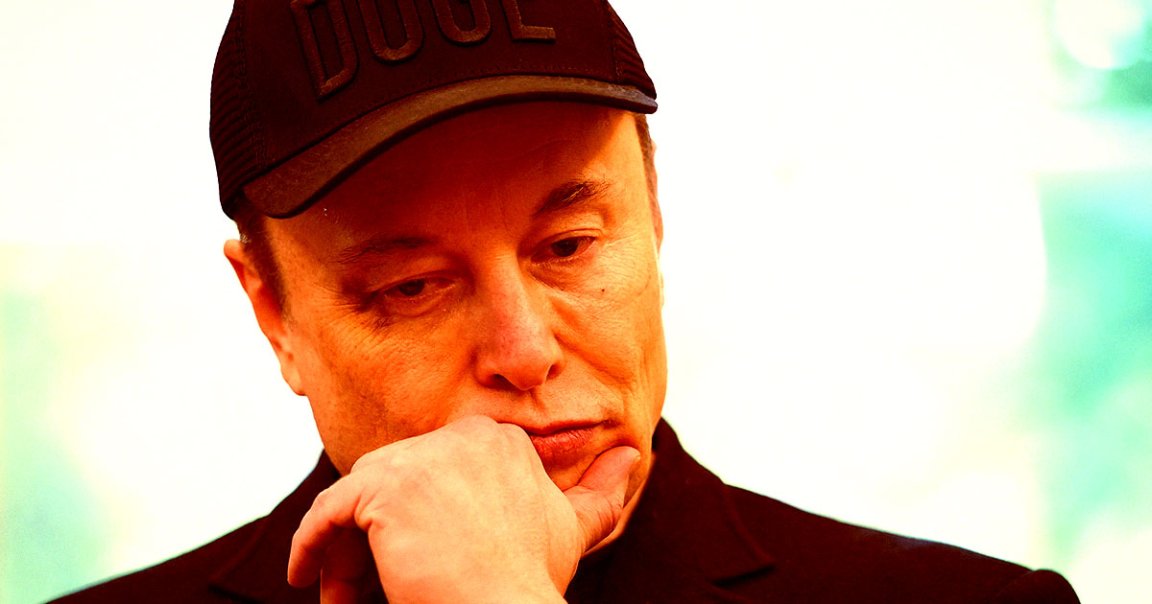
At first, Elon Musk’s Department of Government Efficiency appeared to be a joke, designed to keep the billionaire occupied as he pranced on stage next to then-presidential candidate Donald Trump.
By late October, Musk warned that Americans would have to “endure hardship” if Trump were to win, resulting in some people being “upset.”
“I’ll probably need a lot of security, but it’s got to be done,” he said at the time, referring to his plans to gut government agencies with the help of DOGE.
Over half a year later, the richest man in the world appears to have been accurate in his prediction — for once. His stint at the White House has proven disastrous to both his popularity and his businesses. Tesla has felt the brunt of the worldwide anger directed at Musk, with sales and revenues plummeting.
And the latest poll conducted by Gallup seems to confirm that Musk has become genuinely hated: a whopping 61 percent of 1,000 randomly selected adult American respondents said they had an unfavorable opinion of Musk, topping the list of most despised global figures.
Even Israeli prime minister Benjamin Netanyahu, who has widely been accused of genocide against Palestinians, couldn’t quite match Musk’s “strongly negative skew,” with just 52 percent of respondents saying they had an unfavorable opinion of the politician.
Gallup’s poll corroborates similar findings by previous research. Earlier this year, a poll by the Associated Press found that a measly 33 percent of US adults viewed Musk as “very or somewhat favorable” as of April.
And that was before Musk had a massive falling out with Trump. The pair’s once-rosy bromance came to an incredibly messy end in June, exploding into a gloves-off feud filled with threats and name-calling.
A subsequent AP-backed poll conducted in June showed that fewer Republicans view Musk “very favorably” compared to April, showing another of Musk’s key errors: alienating both sides of the aisle, with no clear upside to himself or his business interests.
Meanwhile, the effects his plummeting popularity has had on his EV business have been palpable. After dragging Tesla’s brand through the mud, buyers have been driven away from the company’s offerings in droves, leaving an enormous hole in the company’s finances.
Sales are continuing to fall sharply in Europe and China, showing that Musk’s antics have been damaging even far from America.
It’s such a strong sentiment, researchers suggested last week, that buyers may be turned off from electric vehicles altogether, even when they’re not Teslas.
According to Gallup’s latest poll, several current and former Trump administration officials have also seen plunging favorability ratings, including secretary of state Marco Rubio, and president Trump himself, setting the stage for a whirlwind midterm election next year.
Trump has since tried to distance himself from Musk, in an apparent attempt to rescue his slipping approval ratings.
“I’m not thinking about Elon,” Trump told reporters in June. “I just wish him well.”
This week, the president’s administration formally axed an ill-conceived program that had involved Musk demanding that every federal employee summarize their five workplace achievements each week.
It’s difficult not to see Musk’s plunging popularity as the result of his own actions. The severity of his self-inflicted wounds is becoming increasingly hard to fathom.
In late May, the billionaire was spotted with a black eye during his Oval Office goodbye party — a symbolically appropriate gift, bookending many months of chaos that had cost him dearly.
More on Musk: Tesla Investors Are Suing Elon Musk Over His Disastrous Robotaxi Debut